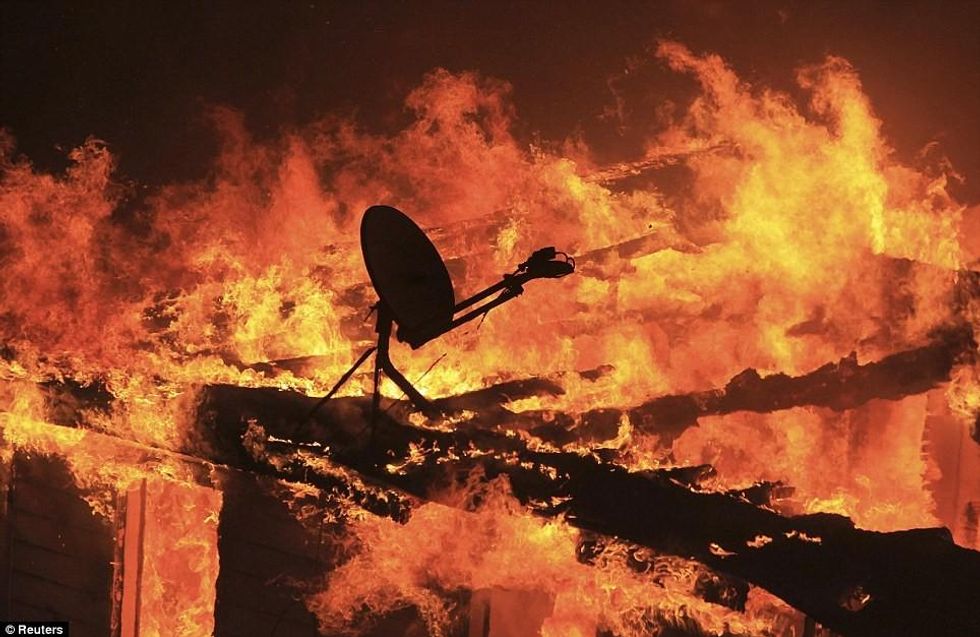As a quickly spreading wildfire continued to rage in southern California on Thursday, a
new report has been released by the state's Environmental Protection Agency tying California's increasing weather-related disaster woes to global climate change.
According to the California EPA report, lakes are warming, sea levels are rising, wildfires are increasing, and mountain plants and animals are moving to higher elevations. Taken together, these troubling trends have had drastic negative impacts on the state's eco-systems.
"The combined impact described by the indicators is dramatic," said Matthew Rodriquez, California's secretary for environmental protection, referring to the "warning signs" of climate change in the region.
"The science is clear that we're already seeing significant changes in every part of the state," said Rodriquez Wednesday. "If you look at these indicators, you can't really debate that climate change, and its impact, is here."
Such indicators examined in the report include:
- average annual temperatures throughout the state have increased 1.5 degrees Fahrenheit since 1895 as the pace of warming has picked up speed since 1975
- drastic decrease in spring runoff from melting Sierra snows on watersheds
- notable sea-level rise along the California coast by an average of 7 inches over the past century
- drastically warming lake waters
- population changes among many ocean animals related to ocean warming
- an upward trend in acreage burned in wildfires
According to the report, the annual average acres burned by California wildfires since 2000 (598,000 acres) is more than double the acreage burned in the 50 years between 1950 and 2000 (264,000 acres).
As news agencies are reporting Thursday, a massive and fast-moving wildfire that ignited Wednesday afternoon has "exploded" and is currently spreading rapidly through the San Jacinto Mountains in Southern California., forcing thousands of people to flee their homes.
The fire burned an estimated 5,000 acres--or nearly 8 square miles--in just the four hours after it began shortly after 2 p.m. on Wednesday.
"It has been a very fast moving fire," said Daniel Berlant, spokesman the state's department of forestry and fire protection. "It exploded this afternoon, really due to the fact that conditions are critically dry across California.''
The fire acts as a living testament to the EPA report, which George Alexeeff, the EPA's health hazards chief, explained "paints a disturbing picture of how climate change is affecting our state and its growing threats to our future."
As the San Francisco Chronicle reports: "While many California scientists have previously reported the impact of global warming on the state's environment, the new report shows the effects of global warming more clearly than ever."
Similarly, last month a Congressional task force of representatives and climate experts concluded that the worsening of wildfires devastating the U.S. is in fact due to climate change, an unprecedented statement for a government body.




